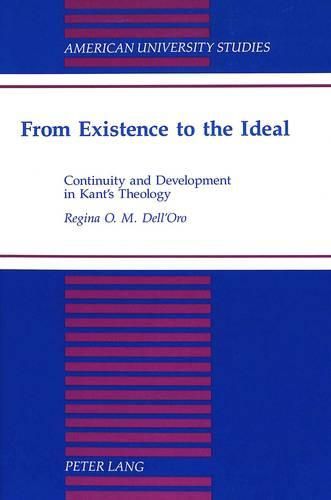Readings Newsletter
Become a Readings Member to make your shopping experience even easier.
Sign in or sign up for free!
You’re not far away from qualifying for FREE standard shipping within Australia
You’ve qualified for FREE standard shipping within Australia
The cart is loading…






In the past, one influential branch of interpretation claimed that the evolution of Kant’s thought suffered a radical change which occurred during the year of the great light. A careful analysis of Kant’s pre-critical writings shows that his thought underwent gradual evolution. This investigation demonstrates that Kant’s rejection of three proofs for God’s existence was conceived around 1755, but was fully elaborated by 1762. It shows, too, that although the proof from possibility suffers an important transformation, the change took place around the mid-sixties. This study breaks new ground by underscoring that the transformation arises - not from epistemological reasons alone - but from a need to redefine the terms reality and existence. While offering the opportunity to mediate on these concepts, the book invites scholars to reimagine Kant’s legacy.
$9.00 standard shipping within Australia
FREE standard shipping within Australia for orders over $100.00
Express & International shipping calculated at checkout
In the past, one influential branch of interpretation claimed that the evolution of Kant’s thought suffered a radical change which occurred during the year of the great light. A careful analysis of Kant’s pre-critical writings shows that his thought underwent gradual evolution. This investigation demonstrates that Kant’s rejection of three proofs for God’s existence was conceived around 1755, but was fully elaborated by 1762. It shows, too, that although the proof from possibility suffers an important transformation, the change took place around the mid-sixties. This study breaks new ground by underscoring that the transformation arises - not from epistemological reasons alone - but from a need to redefine the terms reality and existence. While offering the opportunity to mediate on these concepts, the book invites scholars to reimagine Kant’s legacy.